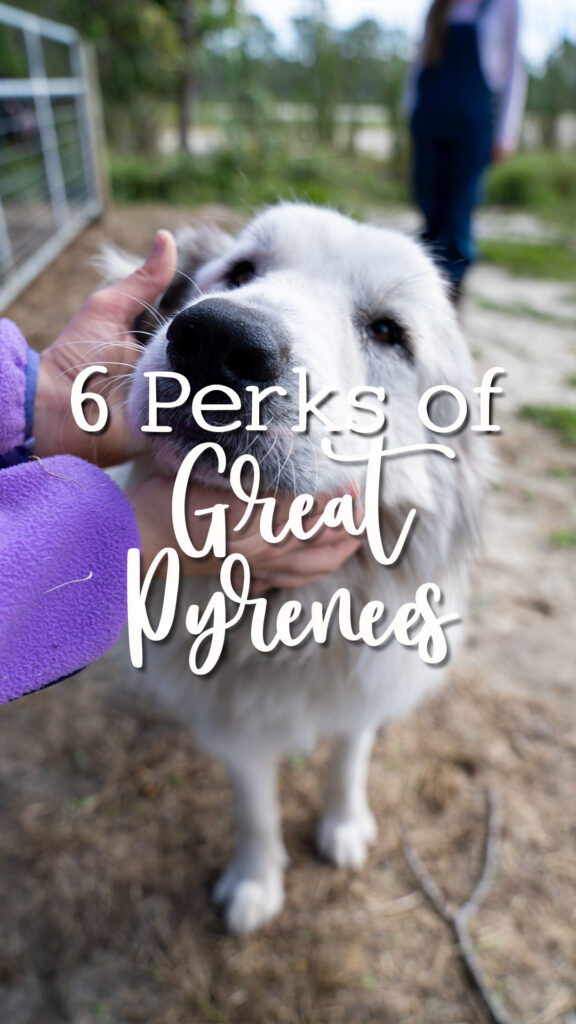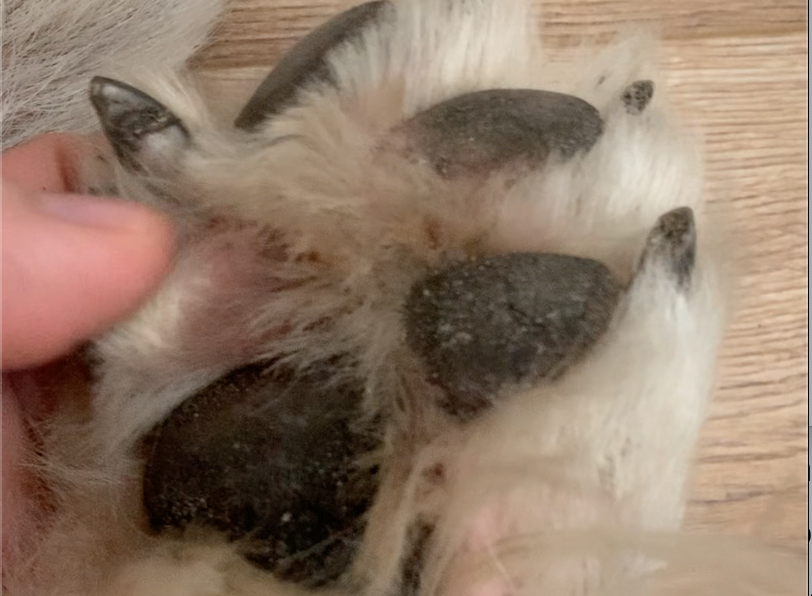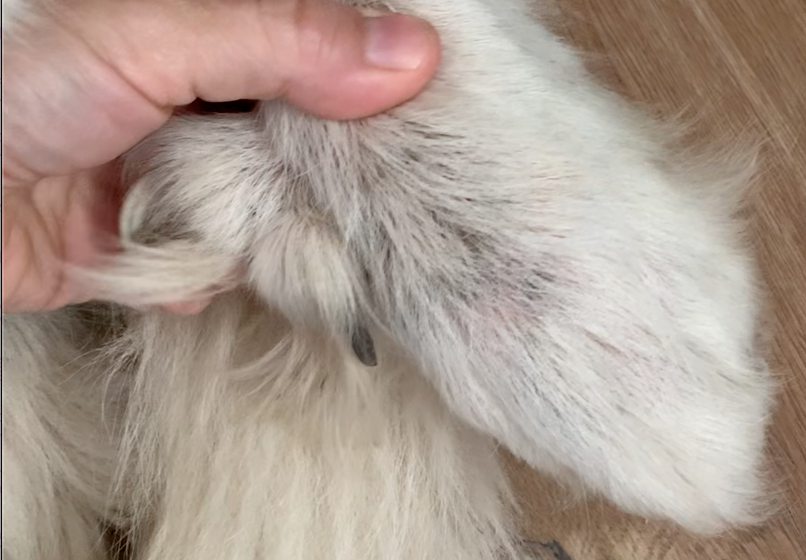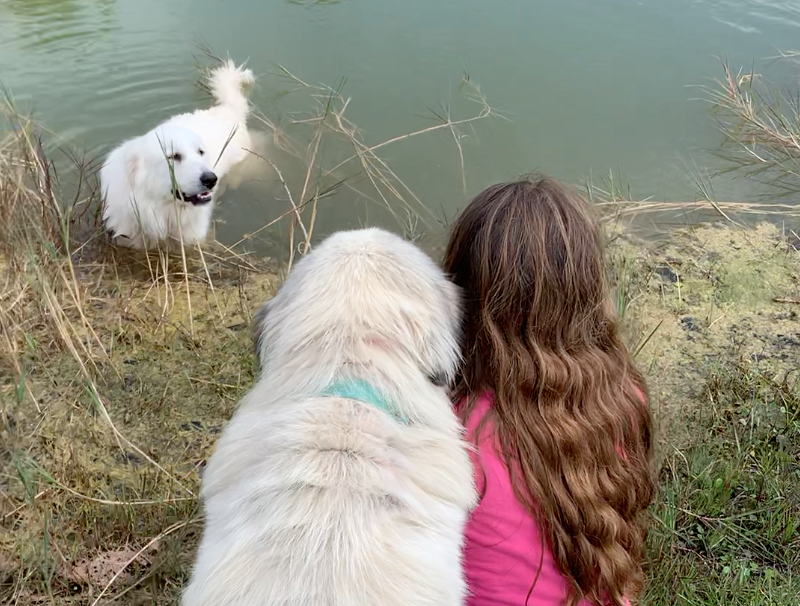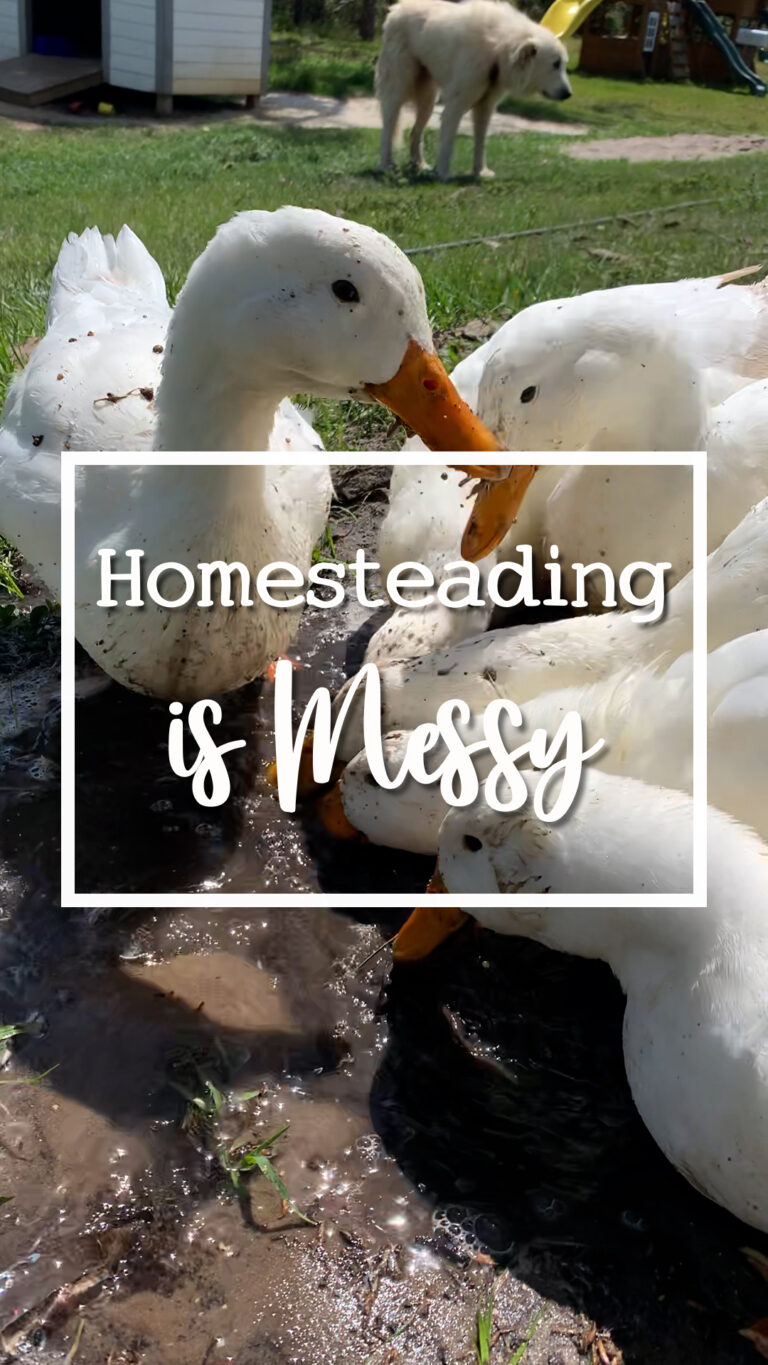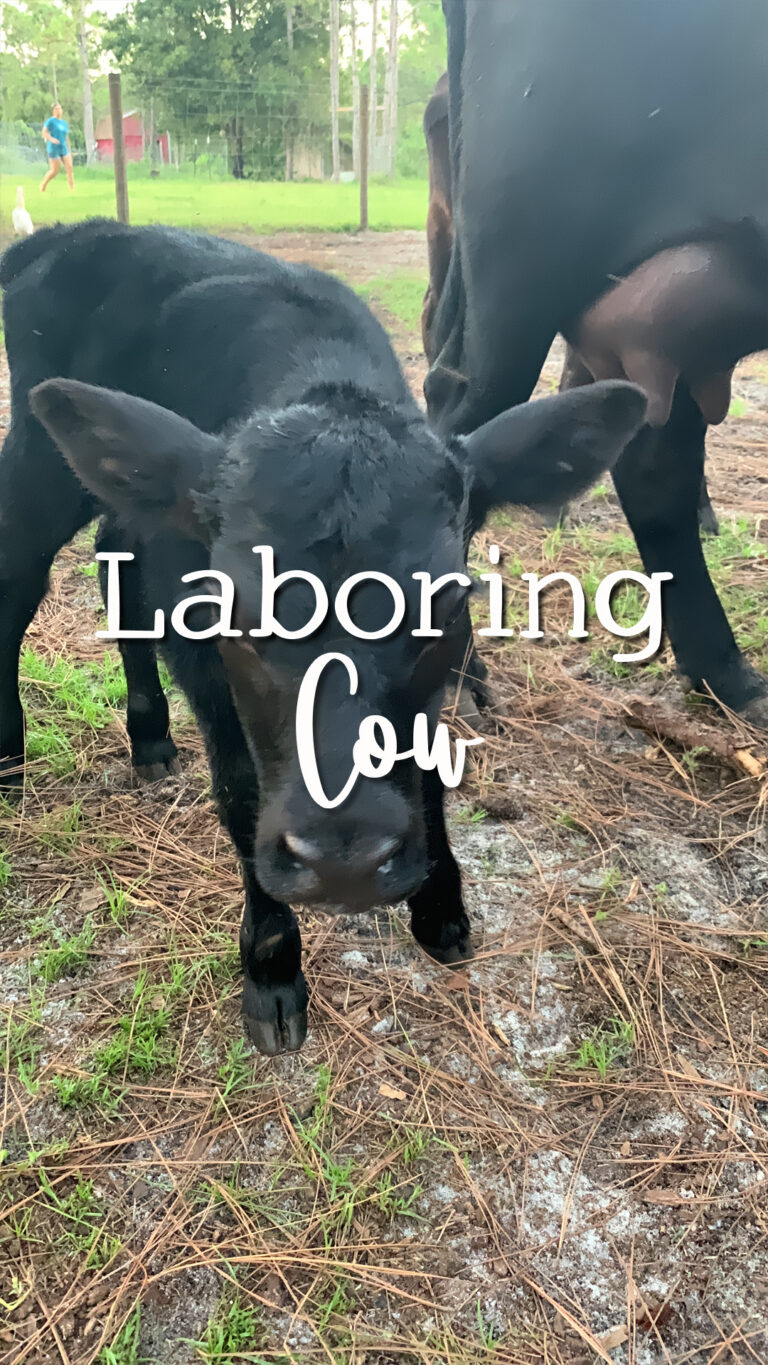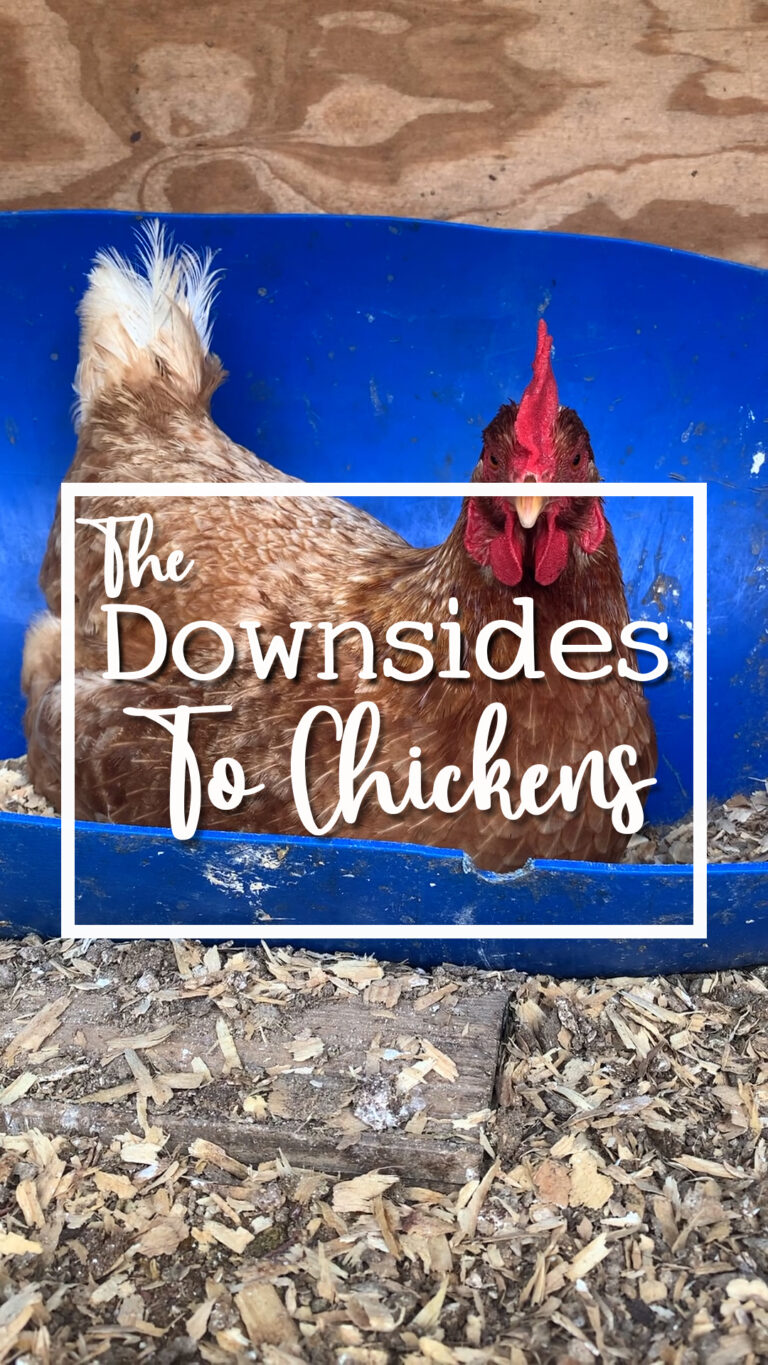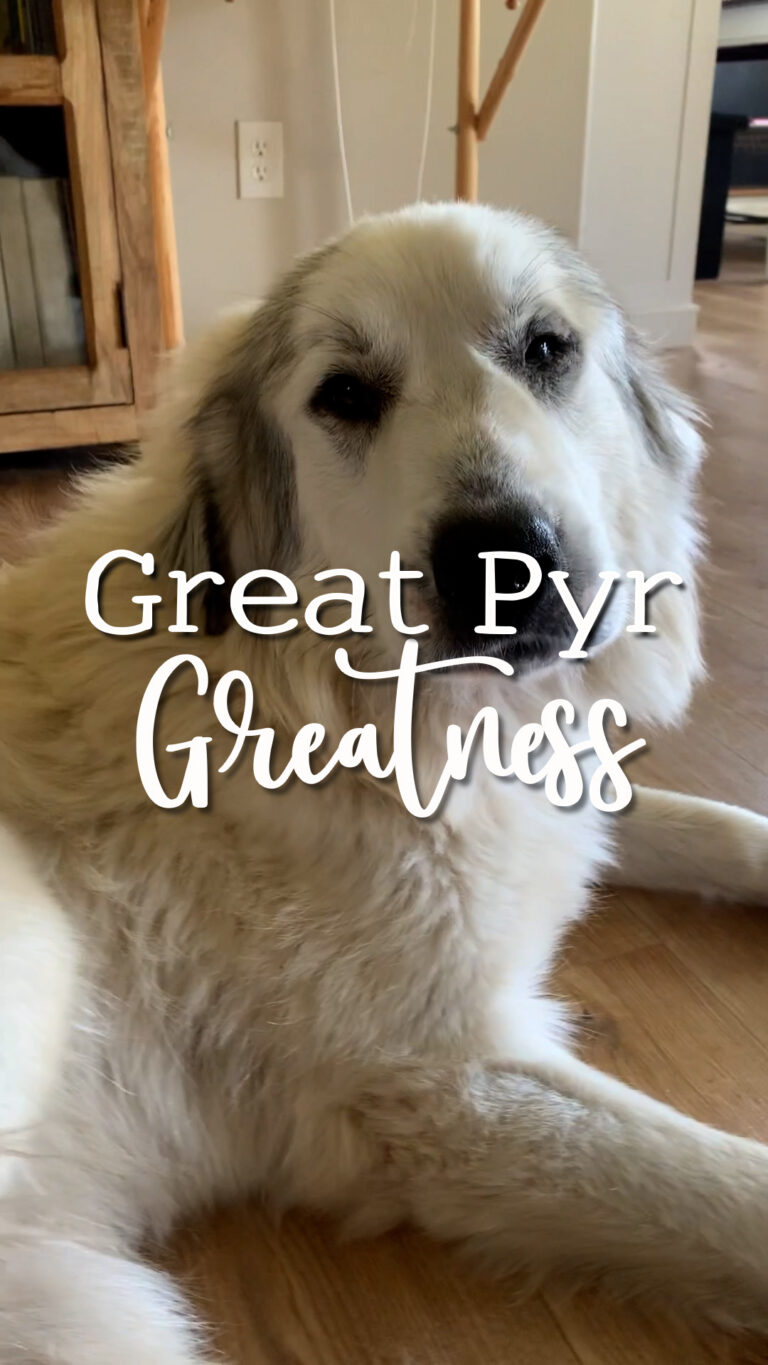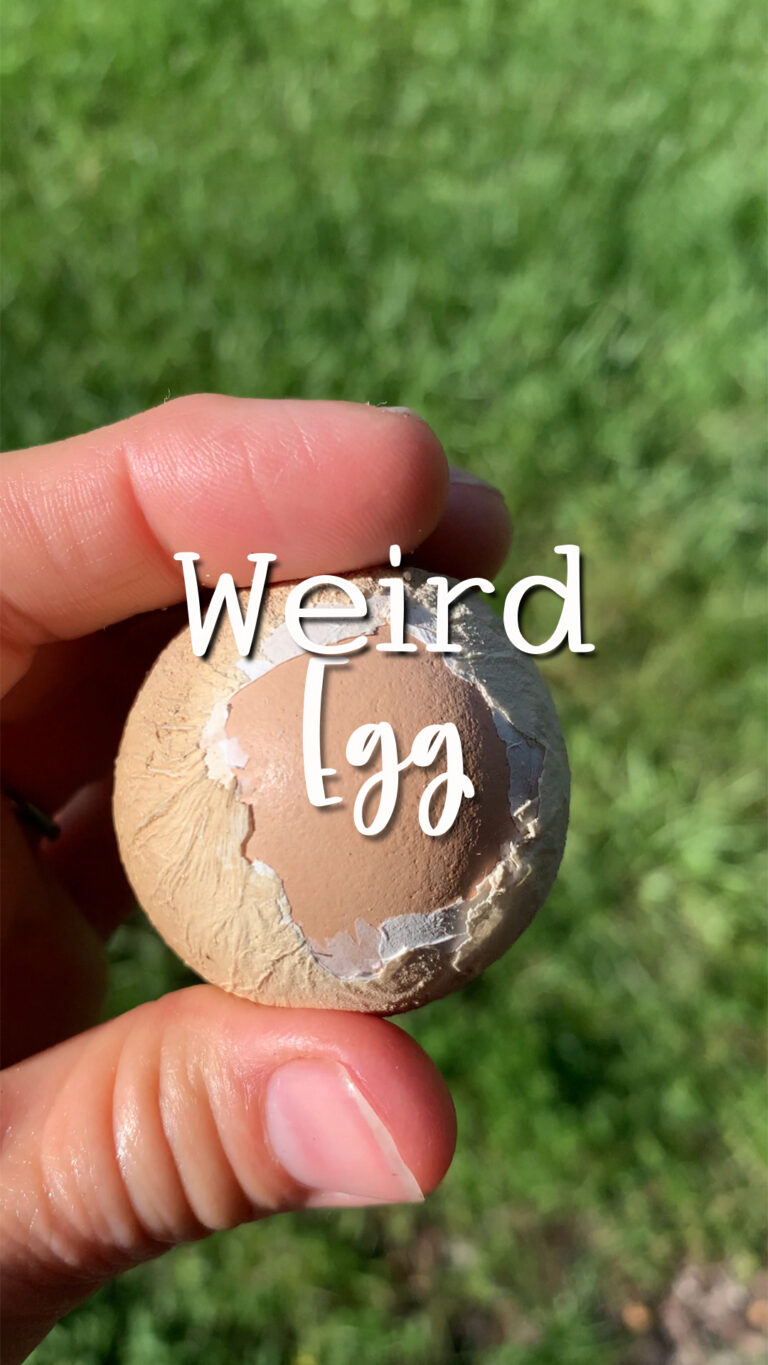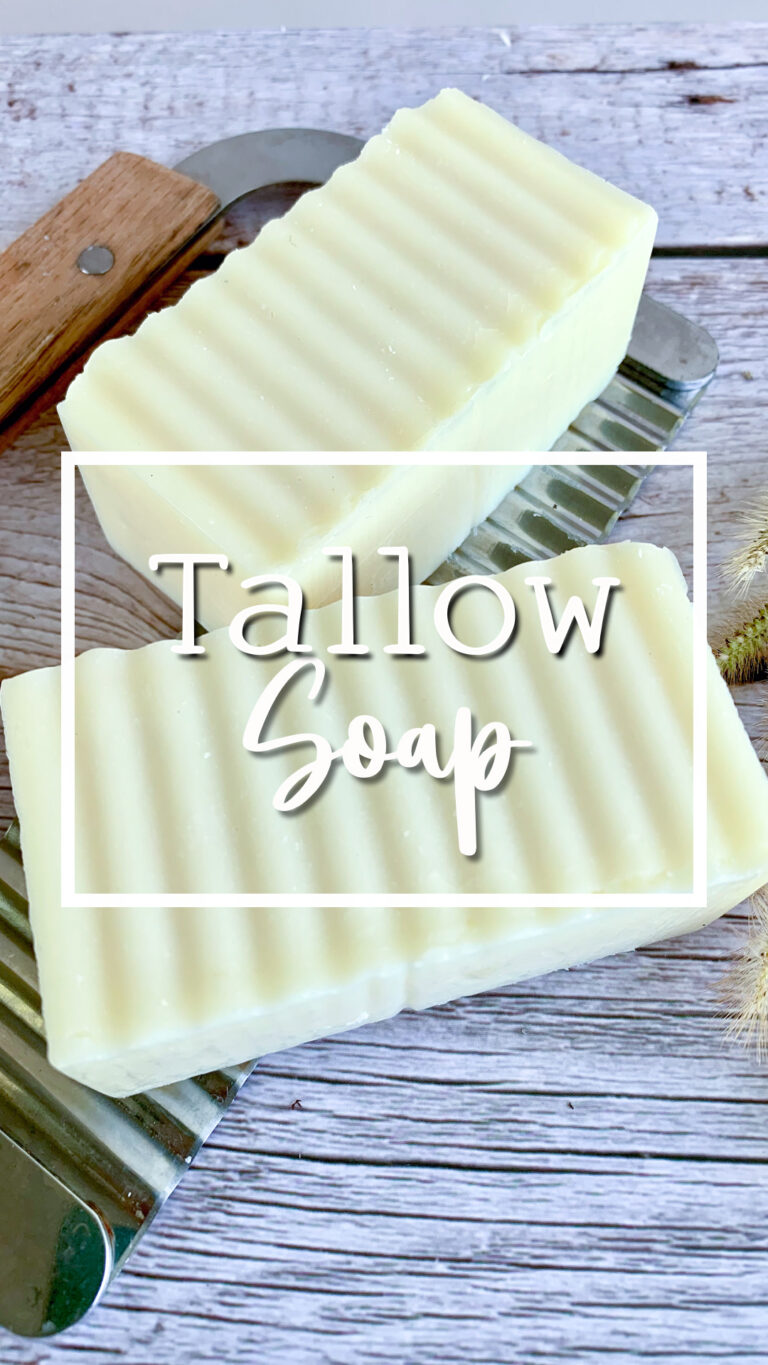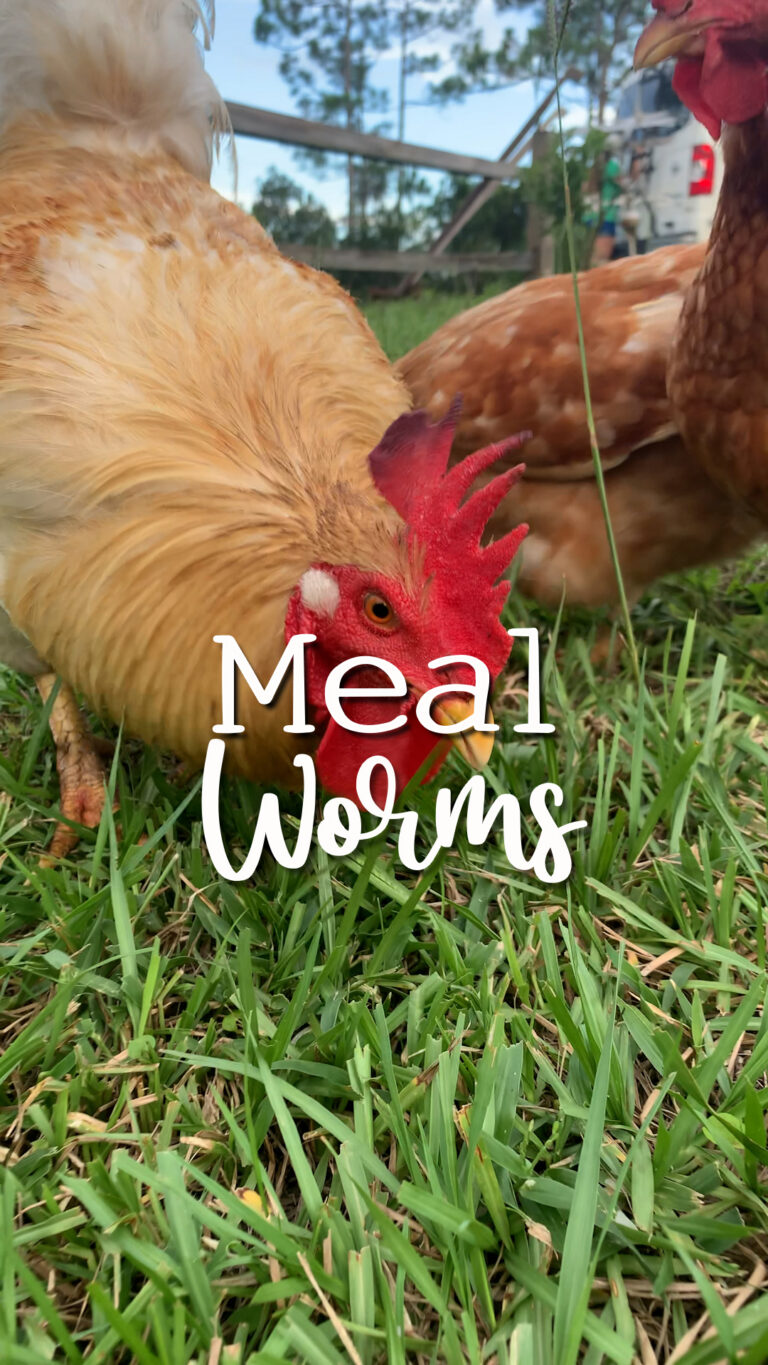Our homestead has suffered many losses over the past decade. But, to predators we have lost dozens, if not a couple hundred ducks and chickens. In one summer we lost 60 chickens to raccoons. Our donkey was kept in the same pen that housed the chicken coop, but Miss Penelope was not one to dirty her hooves to the likes of a raccoon, and she was no help in keeping them away. So, we asked around to see how other people were able to successfully keep 300 chickens, some of which never went into the coop at night. The answer was always the same–Great Pyrenees.
We brought home Lumi and Bianca in November 2021. They were about 8 weeks old. It took several months of training, but these are the best investment we have made for our little farm. So let’s talk about what makes them such a terrific breed of livestock guardian dogs.
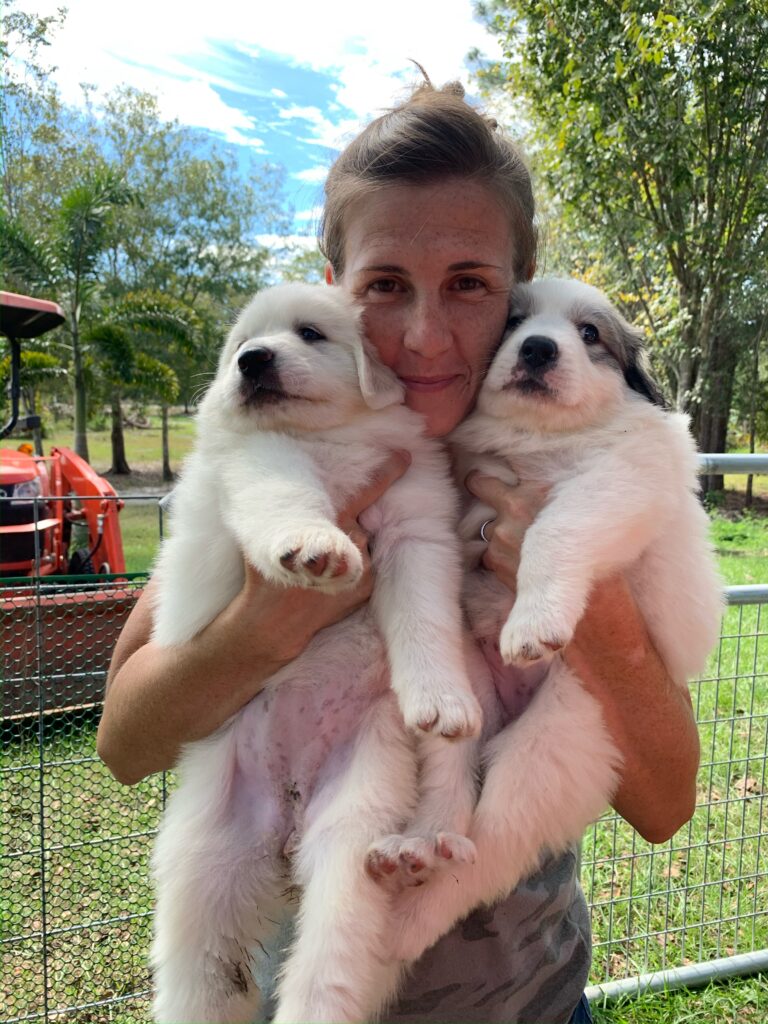
Coat
You might be thinking, “You keep dogs with thick, heavy coats outside in the Florida heat?!” I was apprehensive about this too, until I learned a little more about Great Pyrenees. These dogs have a thick, double layer coat of fur–a long outer coat, and a soft, wavy inner coat. This double layer keeps them warm in the winter (yes, sometimes it gets below 30 degrees here!) and it keeps their skin cool in the summer. Pretty amazing!
….and you also might find some pretty large holes. They do dig to keep cool, which is really the only downside I have found to keeping Pyrs. But with all that they offer us, it’s a minor inconvenience in comparison.
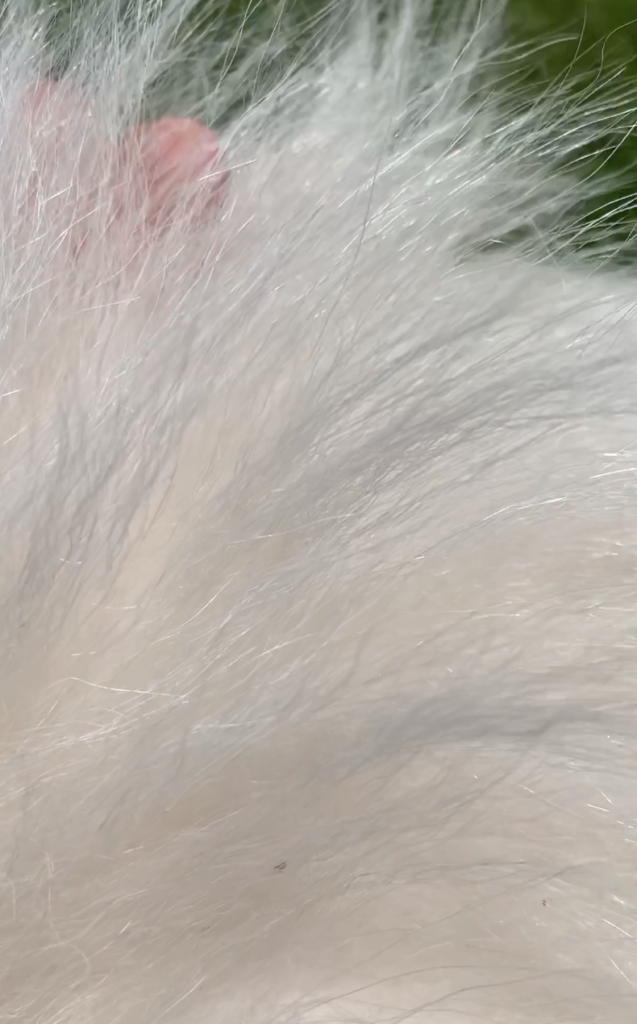
Webbed Toes
Great Pyrenees are a breed that has webbed toes…they actually also have extra toes, which is kind of fun. The design of their feet make swimming super easy, which is another way for them to get cool in the summer. Bianca loves the water! She takes little swims throughout the day to keep cool, but her sister is not really a fan of the water and likes to run by the edge while Bianca swims.
Training the Guardians
When it comes to training, the work is halfway done just by being Great Pyrenees. Great Pyrenees are bred to be an outside dog. It is in their nature to be outside. They want to know what’s happening out there so they can be the first on the scene if someone (or something) needs to be shooed away. They have an innate desire to guard and protect.
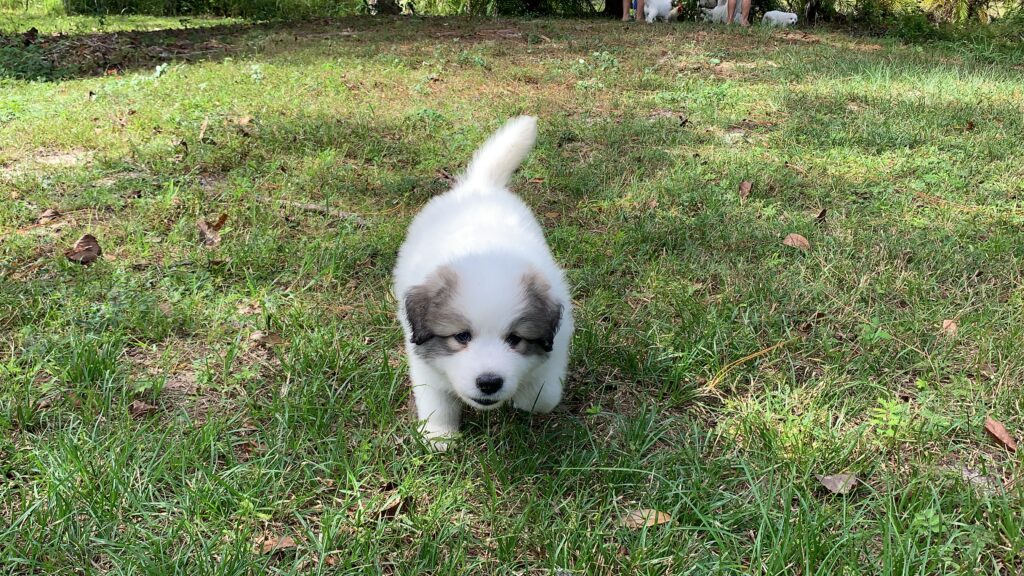
We first began training the puppies to walk the perimeter of our property. They were kept on leashes and simultaneously walked. While we walked we did not allow them to play. This was work time, and so, we would give them the command, “Work!” while we walked. If they strayed or tried to play, we would gently pull them back over and firmly say, “Work, Lumi! Work, Bianca!” It took only a few times of walking the perimeter for them to understand their job. After a while, they could handle the training off the leash, and would follow the command as I voiced it.
Another added training technique that we used was whistling. I have a unique whistle that I do specifically for my dogs. They know it in association with their names and, “Come!” When they hear my whistle they come right away, which has been very helpful, especially at night.

We also taught them to protect our animals. When they were still under a year old, one of the dogs scooped up several newly hatched chicks and gulped them down. We had never had any trouble from them before this happened, so we knew we had to address it immediately. We spent the next several weeks teaching them not to hurt the chicks and chickens. It was the only incident we had, and thankfully, the dogs caught on pretty quickly.
The dogs are all rewarded with treats and extra pets during their training as well to help them learn, but we found they just naturally want to please us and to do the job they were bred to do. After several months I was able to say, “Lumi, guard the door,” and she would obediently go to the front door of our house and lay there.
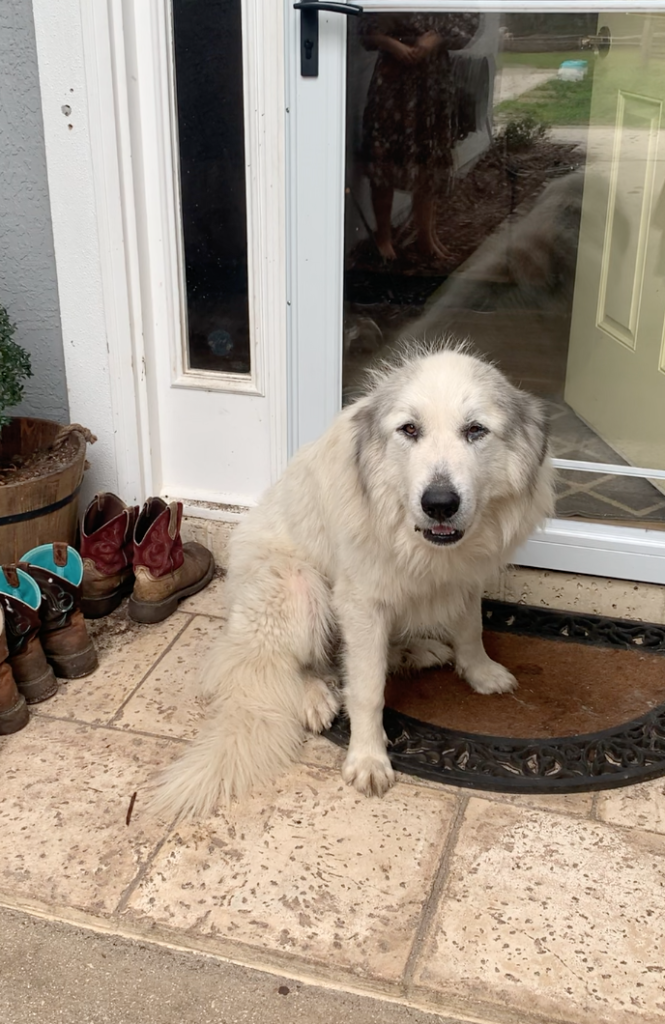
Predators
I can’t say we haven’t lost any chickens since owning our Great Pyrenees. We have lost 2 or 3, but I can tell you that our livestock guardian dogs are never far, and within a moment of hearing trouble, they are on the scene barking and scaring away whatever was after our animals. They are in the pasture with the cows. They are near the pig pen. They are by the chicken coop in a flash. And most importantly, they are guarding our property and home at all hours of the day.
When I wake up in the night, I can hear the dogs working, barking in the distance to keep away whatever has come to try to sneak away a chicken. And in the morning, both girls are peacefully resting. They work hard all night, some nights more than others. But each morning they wake to greet us, have some breakfast, and then settle back in for a morning nap. They’ve earned it!



